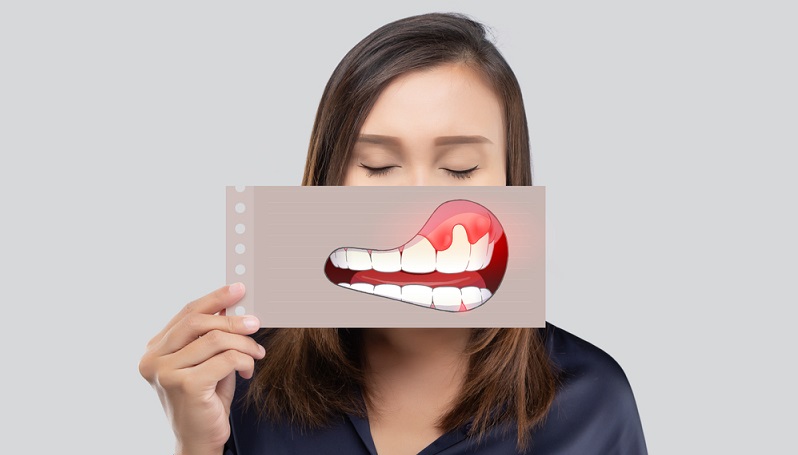Mouth Ulcers HIV: Are Mouth Ulcers Early Symptoms of HIV?
Contents

Do you have mouth sores and wonder if they could be early indicators of HIV?
While mouth ulcers can be a sign of this virus, there are a lot of other factors to take into account.
In this blog post, we'll go over the connection between HIV and mouth ulcers, look at the virus's signs and symptoms, and give you useful advice to help you relax.
So let's find out if those annoying mouth sores need to be taken seriously.
What Are Mouth Ulcers HIV?
Mouth ulcers are a common and often painful symptom in individuals with HIV. They can make eating, drinking, and even speaking difficult. Along with mouth ulcers, some people with HIV may experience other oral health issues, such as gum disease or fungal infections.
Causes of Mouth Ulcers in HIV
Mouth ulcers occur due to the breakdown of the mouth's protective lining, which can be triggered by:
Viral infections
Fungal infections
Stress or physical trauma
HIV weakens the immune system, making it harder for the body to fight off infections. This leaves individuals more vulnerable to frequent or severe mouth ulcers.
Treating Mouth Ulcers in HIV
Treatment for mouth ulcers depends on the underlying cause. Some home remedies include:
Rinsing with salt water
Applying milk of magnesia paste
Using ice chips to relieve pain
For ulcers caused by infections, doctors may prescribe antimicrobial medications. In rare cases, surgery may be needed to remove severely infected tissue.
When to See a Doctor
If you have HIV and develop mouth ulcers, it's important to consult a healthcare provider for proper diagnosis and treatment. Left untreated, mouth ulcers can worsen and lead to more serious complications, affecting overall health and quality of life.
What Causes Mouth Ulcers HIV?
Mouth ulcers are a common symptom of HIV infection. They usually occur within the first few weeks after infection and can be a sign that the virus is progressing.
There are several possible causes of mouth ulcers in people with HIV, including:
HIV Itself:
The virus can directly damage the lining of the mouth, leading to ulceration.
Opportunistic Infections:
Mouth ulcers can be caused by infections that take advantage of the weakened immune system. Common culprits include candida (yeast) infections, herpes simplex virus, and cytomegalovirus.
Medications:
Some antiretroviral drugs used to treat HIV can cause mouth ulcers as a side effect. These include AZT (zidovudine), ddI (didanosine), and d4T (stavudine).
Other Medical Conditions:
Mouth ulcers can also be caused by other underlying medical conditions, such as Crohn's disease or celiac disease.
It's crucial to consult your doctor for treatment if you have HIV and start experiencing mouth sores.
An infection of the gums or bones is one more major issue that mouth ulcers can sometimes cause. It will be easier to avoid complications if the underlying cause of mouth ulcers is treated.
HIV infection frequently manifests as mouth ulcers. They are frequently one of the first symptoms to show up and may indicate that the illness is getting worse. Mouth ulcers can hurt and make it difficult to consume food or liquids.
They may also result in additional issues like throat and mouth infections. HIV-positive individuals may experience mouth ulcers for a variety of reasons; there is no single aetiology of these conditions.
Other Causes Also Include:
The Virus itself: HIV affects the cells that line the mouth, making them more vulnerable to injury and infection.
Other Infections: Herpes simplex virus (HSV) and candida (thrush) are two more infections that are frequently linked to mouth ulcers.
Medications: AZT, one of the HIV drugs, can result in mouth ulcers.
Immune system deficiency: The body has a harder time fending off infection and healing wounds when the immune system is compromised. The result may be mouth ulcers.
Are Mouth Ulcers Early Symptoms Of Mouth Ulcers HIV?
Mouth ulcers can occur in people with HIV, but they are not considered a reliable early symptom. Early signs of HIV are more commonly fever, fatigue, and swollen lymph nodes. While mouth ulcers may develop due to a weakened immune system, they can also result from other factors like stress, infections, or certain medications.
The CDC does not list mouth ulcers as an early indicator of HIV. If you're concerned about HIV, it's important to get tested and consult your healthcare provider for accurate diagnosis and guidance.
How Can I Prevent Mouth Ulcers HIV?
There are a few things you can do to prevent mouth ulcers:
1. Avoid eating harsh, acidic, or spicy foods that can irritate the lining of your mouth.
2. Quit smoking and avoid using tobacco products.
3. Rinse your mouth with a saltwater solution to remove food debris and relieve irritation.
4. Brush and floss your teeth regularly to remove plaque and bacteria.
5. Use a soft-bristled toothbrush to avoid irritating your gums and lips.
6. Apply a lip balm or petroleum jelly to soothe cracked lips.
7. Drink plenty of fluids to stay hydrated and prevent dry mouth.
8. Eat vitamin-rich foods, such as leafy greens, citrus fruits, tomatoes, and yogurt, to boost immunity and prevent infection.
Conclusion
Ultimately, mouth sores may occasionally be an early sign of HIV. The fact that this ailment might have a variety of different reasons and that not all mouth ulcers are caused by HIV should be noted.
If you encounter any mouth ulcer-related signs or symptoms, it is advisable to speak with a doctor to ensure an accurate diagnosis and course of treatment.
People who seek medical attention quickly can get the right medication and guidance on how to properly manage their condition.


